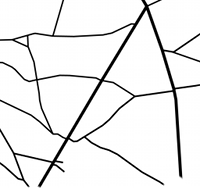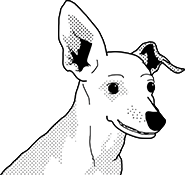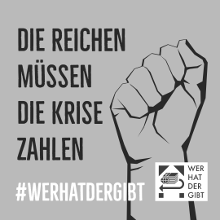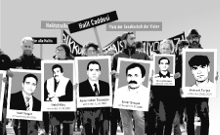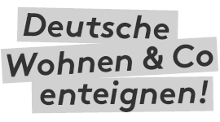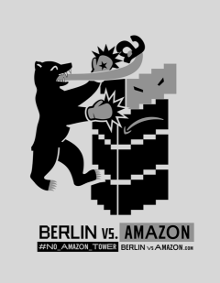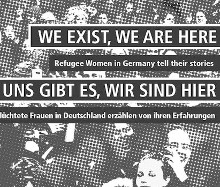Es tut weh
, singt die Frontfrau der Popgruppe Glashaus, zaghaft und dennoch leidend. Es ist was es ist
, sagt die Liebe, bzw. Erich Fried. Es ist so dunkel …
soll Goehte in seinen letzten Atemzuegen liegend gefluestert haben. weiterlesen »
- Decolonization Anyone? Reparationen, Reparatur und das Leben nach der Klimaka…
- Der synodale Weg der katholischen Kirche: Verdrängungskunst und Demütigungs…
- Re-Subjektivierung der Natur? Die (fehlenden) Rechtsgrundlagen der Übergangs…
- Verwundbarkeit des Zusammenlebens: Auf dem Weg zu einer radikalen Politik der…
- Gewalt des Extraktivismus: Von bedrohten Regenwäldern und gespenstischen Ver…
- Verfassung first: Warum Glaube und Religion im Staat nicht an erster Stelle s…
- Roadmap für Degrowth: Auf dem Weg zur sozialen, wirtschaftlichen und politis…
- Strategien des Volksaufstands gegen den Ausverkauf Serbiens an Bergbauunterne…
- Warum es höchste Zeit ist, in Umweltdiskursen "Ernährungssicherheit" neu z…
-
Looking for it
-
Abgelichtet
Also ich bin der Andre, wa. Und ich hatte eine kleine Kamera, die ich ins Nachtleben mitnahm. Daraus wurde ein Hobby. Spaeter auch ein Broterwerb.Seit Jahren schon kann man das kostenlose Stadtmagazin Flyer in der Mitte aufschlagen und blickt auf zwoelf Fotos, die ich gemacht habe. Eine Art Centerfold. Die Fotos zeigen feiernde junge Menschen in den angesagten Berliner Clubs. Schicke Menschen an schicken Orten. weiterlesen »
-
Per Du
Wenn ein Weltmeister in irgendeinem Sportzweig abermals an den Kaempfen teilnimmt, welche ihm vordem den stolzen Titel einbrachten, dann nennen die Sportberichter ihn den Titelverteidiger, die diesbezueglich Muehen aber heissen als Ganzes: die Titelkaempfe. Wir hatten auch Titelkaempfe und der Schreiber ist hier ein Titelverteidiger. Er hat aber keinen Weltmeistertitel zu verteidigen sondern nur einen bescheidenen Anfaengertitel, den du-Titel. Man kann zumindest nicht sagen, dass wir den Titel unserer schweizerischen Monatszeitschrift weit hergeholt haben. Etwas Naheliegenderes kanns ausser dem lieben
Ich
ja nicht geben. weiterlesen » -
Ich bin ein Medium
Click, Du hast mich geoeffnet. Vielleicht ist das heute das erste Mal? Wahrscheinlich nicht. Wahrscheinlich kennen wir uns schon laenger. Mein Format hast Du vermutlich schon schaetzen gelernt, denn ich gehe oekonomisch mit Deiner Zeit um. Ich bin ephemer, fluechtig. Nachdem Du mich gescannt hast, legst Du mich vielleicht irgendwo ab oder loeschst mich direkt nach der e-Speed Lektuere. weiterlesen »
-
Wie heisst Du nochmal?
Extra, extra! Read all about it! Wirtschaftswissenschaftler haben jetztherausgefunden, worauf unsere Vergesslichkeit im Alltag zurueckzufuehren ist. Was Verhaltenspsychologen seit Jahren zu entraetseln versuchen, hat ein Team an der Business Harvard School entschluesselt: Spontane Amnesie, wie Experten das Phaenomen zu nennen pflegen, ist keine Krankheit, noch weniger ist es eine Schwaeche. Es handelt sich dabei um eine wohlkalkulierte Kommunikationsstrategie, die sich der hochgezuechtete Homo Sapiens zwecks Optimierung seiner oekonomischen Performanz antrainiert hat. weiterlesen »
-
Digitales Fanzine? “Es geht um Alternativen zur Alternative.”
Der bevorstehende Relaunch der Berliner Gazette wird zum Anlass genommen, um die kurze, aber spannende Geschichte des digitalen Mini-Feuilletons im Rahmen der transmediale.02 Revue passieren zu lassen. Das Redaktionsteam stellt sich vor und diskutiert zusammen mit Gerrit Gohlke, dem Leiter des Media Arts Lab im Kuenstlerhaus Bethanien, Strategien der Oeffentlichkeitsbildung im elektronischen Briefformat. Gerrit Gohlke formuliert im Vorfeld ein paar einleitende Gedanken zum Thema. weiterlesen »
-
Mission
Does the internet foster a thinking „outside of the box“? This question motivates Berliner Gazette to analyze and test emerging cultural practices. As a nonprofit and nonpartisan association of journalists, researchers, artists and coders we publish berlinergazette.de in German under a Creative Commons-License – with more than 900 contributors from all over the world. For more than 15 years we also organize conferences (e.g. Slow Politics), workshops, edit books, etc.
Background
How can you get people out of their “caves”? How do you get them to emerge from their enclosed environments and partial public spheres, their clubs and cliques, their social and cultural routines? And somehow bring them together across boundaries? The answer is: With the help of media, for example. At least they have the potential to do so. The Berliner Gazette e.V. works toward realizing this potential.
In this context, the Internet is of particular importance. More and more people gain access to it and thus gain access to the processes of global networking and digitalization – processes that are not only changing the landscape of media but also society as a whole. In the 20th century, mass media provided platforms for communication and reflections of society. At the beginning of the 21st century major newspapers and similar (public) entities are hardly able to perform this integrative task. As a matter of fact, they increasingly lose the trust of the masses, who begin to focus on small digital-networked media.
But how can such media be used to think outside of the box and reflect the interests of society? This question leads the Berliner Gazette e.V. to analyze groundbreaking features of media in the era of the Internet and to test them in practice. Against this backdrop the nonprofit and nonpartisan association weaves its social networks – offline and online, locally and globally.
History
At the end of the 1990s, the cultural scene in Berlin had no platform on the Internet. First online projects had already failed, the commercialization of the Internet was progressing. Facing these conditions, Krystian Woznicki started a new publishing project. Its aim was to take both the social dynamics of the Internet and the idea of the classic feuilleton seriously (the culture section of the conventional newspaper). Thus, in July 1999, Woznicki founded, within the online community Kulturserver, the Berliner Gazette.
At first, Woznicki’s project took the form of a weekly electronic newspaper: not a newsletter, but a weekly feuilleton in the form of an e-mail, delivered every Wednesday to its readers’ mailboxes. Choosing the content, the editorial staff followed guidelines still relevant today: turning readers into authors, while also inviting outsiders to become authors. In order to distribute the content, the staff also seeks synergies with various offline formats: symposiums, anthologies, etc. In this way, the network of the Berliner Gazette has continued to grow – leaving the physical boundaries of Berlin far behind.
When in 2002 – after the crash of the new economy – the Internet was declared dead by many, the Berliner Gazette presented itself with an extended Web site. The staff launched Germany’s first collective blog and systematized their thematic work: the editors interview representatives of various sectors of cultural innovations ((sub-)politics, economy, technology, art, science) on annual focus themes and publish weekly protocols of these interviews. Be it “Work,” “Language,” “Time” or “Water” – the annual themes continue to question important issues of our time as the commons of the 21st century.
In the press
The voice of Post-Germany.
Geert Lovink/fibrecultureA new form of journalistic intervention.
Christoph Dreher/Digital SpiritSmart selection of authors.
Anne Heaming/fluter.de -
Go Public!
Der eine oder die andere wird sich vielleicht erinnern, dass ich vor 16 Monaten, im Herbst 2000, hier schon einmal eine Kolumne schreiben durfte, damals als frisch gebackener kuenstlerischer Leiter der transmediale, mit dem ersten scharfen Berliner Wind in der Nase. Die transmediale.01 ist gluecklich ueber die Buehne gegangen, inklusive einer im Nachhinein gedruckten Buchdokumentation, und wir stehen im Moment in den Startloechern fuer die transmediale.02, die am 5. Februar im Haus der Kulturen der Welt eroeffnet werden wird. weiterlesen »
-
Executive Board
Florian Kosak, born in 1983, studied business administration at SRH University Berlin. Experience in event management and e-commerce. 2004 – 2008, project manager in an agency for event marketing. Since 2005, chief executive officer (CEO) of a company in the field of e-commerce. Volunteer business executive of the Berliner Gazette e.V.
Magdalena Taube, born in 1983, studied modern German literature and British and American sciences at Humboldt University Berlin. Experience in the field of (online) journalism. 2007 – 2009, culture and media editor of du-machst.de, an online platform for youth empowerment initiated by the Federal Ministry for Families. Since 2009, culture editor of Kulturportal Deutschland, a platform for cultural producers. Volunteer chief editor of the Berliner Gazette.
Krystian Woznicki, born in 1972, studied Islamic and Asian sciences as well as Spanish at Humboldt University Berlin. Experience as curator, writer, editor, lecturer. 1995 – 1998, Tokyo correspondent for Spex. 1997, curator of the “Young Japanese Cinema”-festival at the museum of film in Antwerp. 2002 – 2005, co-publisher of a reader-series by etc.publications. Author of several books on globalization. Most recent publications: “Abschalten” (“Disconnect”, 2008) and “Wer hat Angst vor Gemeinschaft?” (“Who is afraid of community?”, 2009). Volunteer chairman of the Berliner Gazette e.V.
-
Honorary Posts
Sarah Curth, born in 1989, studies German Literature and Cultural Science at Humboldt University Berlin (HU). Leads a workshop about “Networked writing – theory and praxis of new journalistic forms in the Internet” at the Institute of German Literature at the HU. Writes for the city blog SpottedByLocals and runs her own weblog lotterliebe. Holds an honorary post at the Berliner Gazette e.V. since 2009. Editor of the Berliner Gazette.
Karsten Heller, born in 1970, studied communication design at art academy Berlin-Weißensee. Activities include photography, design and publishing. Co-founder of Berlin-based agency DiG Design, in this context responsible for design at Centraltheater Leipzig. Since 2003, co-owner of the independent art and theory publishing house Diamondpaper. Holds an honorary post at the Berliner Gazette e.V. since 2001. Designer of fiverse communication and advertising media.
Caspar Clemens Mierau, born in 1978, studied media-culture sciences at Bauhaus University Weimar. Experience in technical advice, programming, online journalism and in imparting knowledge and know-how in different fields of technology and media culture. Commitments in new media organizations (c-base e.V. and ubuntu Germany e.V.). Runs the weblog leitmedium.de. Holds an honorary post at the Berliner Gazette e.V. since 2008. Technical editor of the Berliner Gazette.
Lena Posingies, born in 1982, studied German and American literature at Technical University Berlin and Humboldt University Berlin. Experience in cultural journalism and language and culture education. Stopovers at weekly journal Sud Ouest Dimanche in Bordeaux, at Goethe Institute Togo in Lomé and Cornelsen Publishing Berlin. Holds an honorary post at the Berliner Gazette e.V. since 2006. Editor of the Berliner Gazette.
Anton Scholz, born in 1987, studies of English literature and history at Potsdam University. Interests in tourism, politics and geography. Took part in a one-year exchange program in the U.S. Several research trips in Europe, Asia, the Middle East and North Africa. Holds an honorary post at the Berliner Gazette e.V. since 2008. Coordinator of public relations and author for the Berliner Gazette.
Michael Taube, born in 1987, studies of child and youth care at Pestalozzi-Fröbel-Haus in Berlin. Experience in and commitment to social movements (animal rights, data protection) as well as in design and photography. Holds an honorary post at the Berliner Gazette e.V. since 2007. Picture editor of and author for the Berliner Gazette.
Fabian Wolff, born in 1989, studies German and English at Humboldt University Berlin. Longtime editor of Berlin youth-culture magazine Ätzettera. Vice chief editor of Brennpunkt F! and co-founder of online magazine drifter. Interests in high- and popculture and totalitarianism-studies. Fluent in Hebronics. Holds an honorary post at the Berliner Gazette e.V. since 2009. Editor of and author for the Berliner Gazette.
-
Mode of operation
The Berliner Gazette e.V.’s central mode of operation is cooperation. To achieve its ambitious goals, the nonprofit association builds both temporary and long-term partnerships. Partners may be as varied as initiatives and institutions, political and cultural foundations, educational and research facilities, government agencies and businesses. The executive board of the Berliner Gazette e.V. develops operational concepts and coordinates the collaborations.
Former partners of the Berlin Gazette e.V. include: Berlin Society for New Music e. V., The Federal Agency for Civic Education, Diaphanes publishers, filesharing, Free University Berlin, General Public, German Theater Abroad, Haus Schwarzenberg e.V., Heinrich Böll Foundation, Humboldt University Berlin, Italian Institute for Culture Berlin, iq consult, Media Arts Lab/ Artist House Bethanien, Mediamatic Foundation, neue berliner initiative (nbi), Sophiensaele, Foundation kulturserver.de gGmbH, Suhrkamp publishers, transmediale, transversale, transcript publishers, University of Hokkaido, uqbar, urban drift.
In addition, the activities of the Berliner Gazette e.V. have been supported by public funds (e.g. German Federal Cultural Foundation, Berlin Fund for Cultural Education) and sponsors (e.g. FRED, Get Digital, Multitask).
Boasting 10 years of experience, the Berliner Gazette e.V. enriches its mode of operation by offering its skills, which are acquired at the intersection of media, culture and education, for consultancy and service. The latter especially in the context of its seminar program. Questions regarding this matter can be answered by the Executive Board of the Berliner Gazette e.V.
-
Formats
The Berliner Gazette e.V. ties together different media formats: the nonprofit and nonpartisan association publishes the berlinergazette.de as an independent and non-commercial medium, organizes symposia, launches initiatives, edits anthologies and offers seminars.
All of these formats are highly permeable and allow dialogues, with the Berliner Gazette e.V. acting as a facilitator, creating conditions for participation, communication and the formation of publicity. Along these lines the formats become both technical and discoursive tools.
The formats as tools, allow a heterogeneous group of people to digest their experiences, views and problems and to put them in a wider context. In this way anyone can get actively involved in the major debates of our time and influence them. That means: the formats of the Berliner Gazette e.V. are not only made for media users, but also, in a high degree, by them.


